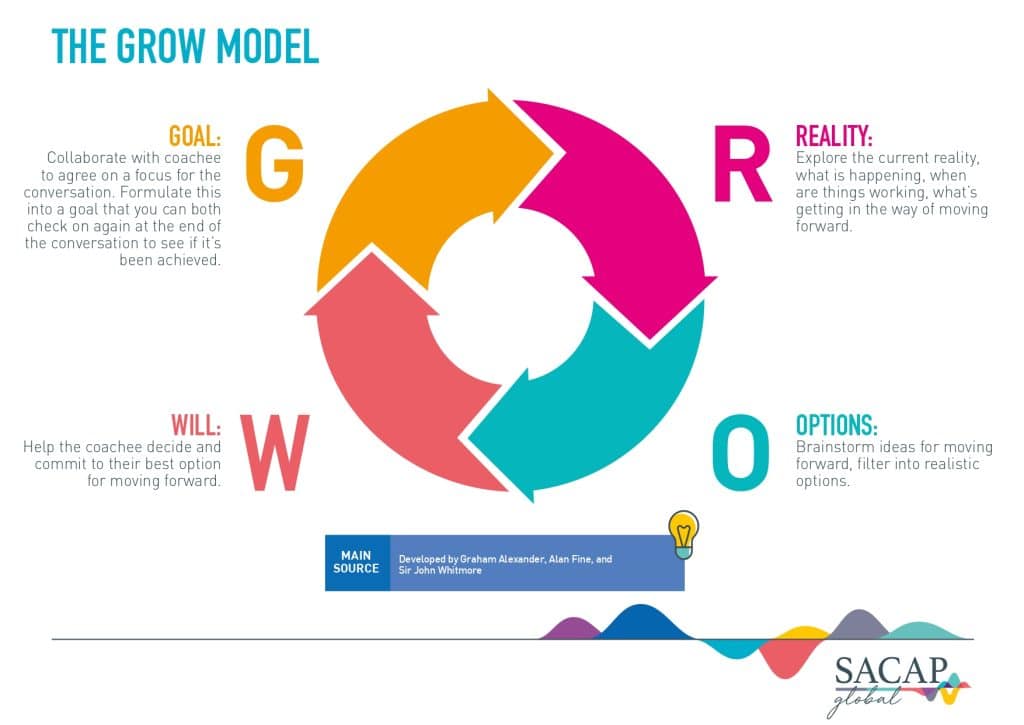Coaching can help us get clarity and perspective on ourselves and our lives. It gives us the space to process change. Coaching can also help us develop the self-confidence to adapt and achieve our goals.
The process and effort involved in achieving success are popularly discussed in sports. Award-winning television series like Ted Lasso dramatise how sports coaching happens in a team setting. However, using slightly different means and methods, a similar process also applies to individuals and businesses.
But what exactly is coaching? This post will discuss what it is, what it involves, and its benefits.
What is coaching?
Coaching is a process that involves structured conversations driven by what the client wants to achieve. This process helps the individual or group gain insight into what they want and what holds them back from performing optimally and reaching their potential.
Coaching conversations ignite thinking. They provide a space to raise awareness about oneself and one’s circumstances. They assist the client to figure out the best actions to take to be the best version of themselves. This is all geared towards achieving personal and professional goals the client sets for themselves.
Ultimately, coaching can facilitate development in many different areas. For example, you can engage in self-development through life coaching to achieve personal goals. Professional goals, on the other hand, can be achieved through business or executive coaching.
What does coaching involve exactly?
We’ve established that coaching involves gaining insight into how to progress in life and work. To do this, coaches use various tools to help identify strengths and weaknesses and areas for growth and improvement.
Most importantly, it’s about developing helpful strategies to achieve short-term goals and shift your mindset so you can reach your full potential in the long-term.
Tools and techniques can differ depending on the coach’s expertise but predominantly involve providing guidance and support. Coaches help set goals, ask thought-provoking questions, share observations, encourage and challenge their clients.
Coaches don’t tell you what to do, but they will help steer you in the right direction. This support is valuable because we might know what we want but need additional support and insight to move forward.
We also have blind spots that limit our perspective. Coaches can help you to recognise these blind spots by providing objectivity. Additionally, through a constructive and collaborative engagement process, you’ll get an in-depth insight into various areas of your life and career.
What are the benefits of coaching?
We’ve all watched enough movies and television to understand the importance of sports coaching and how teams need guidance and support to endure physical and mental hardship to win. However, it might be more challenging to visualise how this applies to your own personal and professional life.
Here are some of the ways that coaching can help you:
Focusing on the present
One of the main benefits of coaching is that it focuses on the present. As opposed to counselling or therapy, which is valuable for making sense of your past, coaching gives you practical tools to see where you are now and what you need to do to move forward.
Coaches also offer accountability, which can help avoid procrastination and getting stuck in unproductive thought patterns.
Adapting to change
We live in a world where we often have to deal with the effects of unprecedented change. This constant pressure to adapt to evolving technologies and social realities can be stressful. While there is much we can do on our own to cope, getting professional perspective and insight makes a world of difference.
Coaches don’t just offer superficial support either, as they go through training to understand how change happens from a neuroscientific perspective. With these skills, coaches help you navigate change in your own life through their understanding of human behaviour.
Psychological safety
Coaches provide psychological safety and a place for you to share openly. Then, through conversational tools like the GROW model, coaches guide you through structured conversations to identify opportunities for growth and problem-solving.
It can often be challenging to step outside our entrenched thought patterns and views about the world. We’ve developed many behaviours and attitudes to survive, which can help but also hinder us. Coaching can help us break down limiting beliefs and offer us alternative ways of thinking and acting in a supportive environment.

Learn more about coaching with SACAP Global
We’ve covered the basics of what coaching is and provided some insight into the benefits of this approach, especially for individuals.
If you’re interested in learning more, our short online course, Intro to Coaching, offers a fundamental insight into what effective coaching is and isn’t. You’ll also learn how it can help individuals to navigate change by applying various tools and frameworks. After completing this online short course, you’ll understand more about this profession.
If you already have a foundational understanding of coaching, elevate your management approach with the Coaching Skills for Managers short course.
